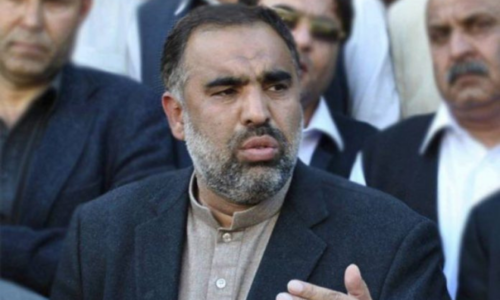
ISLAMABAD: The erstwhile federally administered tribal areas (Fata) is now in the mainstream, but with half the number of seats in the National Assembly.
The 12 seats allocated to Fata — merged with Khyber Pakhtunkhwa in 2018 after the 25th constitutional amendment — under the Musharraf regime have been abolished and six seats have been allocated to KP based on its population, according to the Election Commission of Pakistan’s (ECP) preliminary delimitation report. As a result, the number of National Assembly’s general seats has dropped to 266 from 272.
Fata was given eight seats in the National Assembly when constituencies were delimited for the first time under the 1973 Constitution, in line with the proportionate share in the population census held a year before.
The constituencies were delimited again in 1988 following the fourth population census held in 1981. The demographic changes demanded that the Fata share be reduced from eight to five, giving one more seat each to Punjab, Sindh and KP (then North-West Frontier Province).
The election commission accordingly published the preliminary delimitation when the then-president Ghulam Ishaq Khan promulgated an ordinance declaring that the Fata share shall remain as previous.
The next delimitation was held under the government of retired general Pervez Musharraf, who raised the seat allocation for Fata to 12, which was double its share in the population.
Mr Musharraf had provided a legal cover to it by inserting a table as clause 3 of Article 51 of the Constitution, detailing the share of each province and area while keeping intact the original article calling for seat distribution in accordance with population.
As for the provincial assembly, the erstwhile Fata will represent Khyber Pakhtunkhwa with 16 seats in the provincial assembly for the first time, according to initial delimitation results. Therefore, the KP Assembly will now have 115 general seats compared to 99 at present.
KP’s National Assembly seats will begin with Chitral from NA-1 to NA-45, followed by three renumbered constituencies from the federal capital, i.e. NA-46 to 48.
Punjab’s constituencies will start from Attock’s NA-49 and end at NA-189 in Rajanpur, while those of Sindh will start from NA-190 Jacobabad and continue till NA-250 Karachi. Balochistan’s constituencies will be from NA-251 to NA-266.
Under the delimitation, another change will be the reduction of one reserved seat for women in the National Assembly from Punjab and the addition of one reserved seat for women from KP.
According to a preliminary delimitation report published by the ECP, each district’s population was divided over the population quota for the National Assembly seat in the province to obtain the share of seats for each district.
Published in Dawn, June 2nd, 2022












































Dear visitor, the comments section is undergoing an overhaul and will return soon.